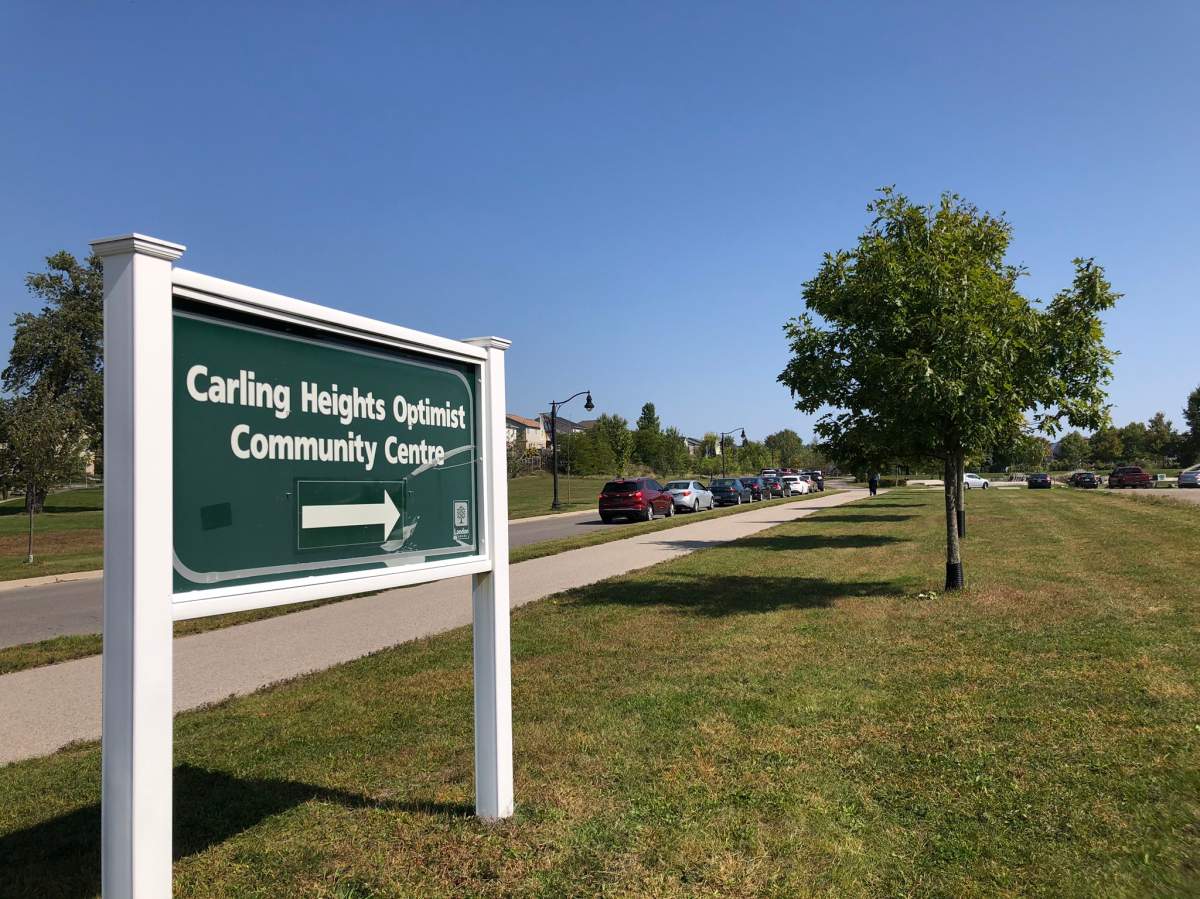With sustained, overwhelming demand for London’s COVID-19 assessment centres, the group responsible for operating the two locations is trying to find solutions and looking into introducing a telephone appointment booking system.

Since Sept. 12, wait times have consistently climbed above two hours and for several days either one or both of the locations reached capacity well before the end of the day.
The Middlesex-London Health Unit has been reporting wait times and offering up information about the centres, but the locations are actually operated by Thames Valley Family Health Team and London Health Sciences Centre in partnership with the paramedic service and with oversight from Ontario Health, according to local medical officer of health Dr. Chris Mackie.
Mike McMahon, executive director of Thames Valley Family Health Team, says the team is working on an appointment booking system.
“I think that booked appointments will start with the telephone because the technology to deliver online booking, with any sort of ability to verify why somebody is booking, is really tough to find,” he said.
“It’s in all of our nature to want to be at the front of the line. So if we introduced online booking, very quickly, whatever appears to be the priority for the day gets filled up in the online queue.
“That is super frustrating to people when they know that they’re quite ill and their tests have been delayed and they arrive and find somebody who might be asymptomatic in front of them. So we’re being really careful about trying to introduce a booking system that everybody can count on.”
McMahon says the team is planning to have a system in place in early October.
He also said he doesn’t believe there would be enough long-term demand to sustain a third assessment centre “at the behest of the government,” but he would like to have some kind of surge capacity.

Get weekly health news
“We would like to look at bringing more assessment centre volume online. The challenge to that is personnel and site,” he said.
In addition to the frustration of a lengthy wait for those in the queue, the lineups have also created a challenge for those who live near the locations, with vehicles in line blocking residential driveways, for example.
- Head-Smashed-In Buffalo Jump heritage site enjoys boost after shout out on ‘The Pitt’
- What is Nipah virus? What to know about the disease as India faces outbreak
- Pizza Pops contaminated with E. coli tied to 7 hospitalizations, data shows
- Pizza Pops E. coli recall grows as roughly a dozen products now hit
“We’ve heard from the neighbours loud and clear this week about what a challenge it’s been for them. So when you’re thinking about where you would put a third centre, what would it look like and what would that do to the volume long-term?”
In the meantime, the team is hoping to improve “lineup management,” which involves staff communicating to those in line without obvious symptoms or with “very, very mild symptoms” that they should return another day when the queue is shorter.
“We’re still testing far more people than need to be tested daily,” he said.
“The asymptomatic folks that are concerned about their community and their families, we acknowledge how they’re feeling. But we think that if we really focus on the folks that need to have a test — for either their own personal health, child care, school or essential health-care worker status — that we could be successful within the 800 (daily total) tests we’re doing.”
On Wednesday, a ticketing system was introduced at the Oakridge Arena location so that people who fit the criteria to receive a test can come back, which did help to combat the queue, though the centre reached capacity before noon. The Carling Heights Optimist Community Centre location, meanwhile, had a lengthy lineup over the noon hour.
Those in line on Wednesday expressed mixed emotions, with some accepting the lineups as inevitable and others noting that after seven months, it’s hard to believe the lack of preparedness.
“It’s better to wait and find out… I’m happy to do it, happy to wait,” Valerie Figueiredo told Global News.
“The more people get tested, the better for everyone. So I’m happy to see as many people here.”
Ben McCauley was getting a test for the second time and pointed out that when he got a test roughly a month ago, there was “no line.”
“The last time I was here it was about an hour in and out. It might be a whole afternoon (this time) at this point.”
Teresa Miskasari says her doctor’s office recommended that she get tested after she called about having hot and cold sweats.
“She tells me this is one of the symptoms of COVID,” she told Global News. “I have to deal with this lineup and I don’t feel well. I just had day surgery on Friday. To me this is, pardon my expression, it’s bulls–t.”
She said she wasn’t tested when she was at the hospital on Friday, nor when she was at the hospital on Tuesday night.
“I don’t work but, I’m sure a lot of people that do work, it’s a royal pain in the a–. I can give them that,” she added.
“I’m losing faith in our system. Tremendously.”
Also on Wednesday, Premier Doug Ford unveiled details of a plan to have pharmacies in the province offer testing as part of an effort to address lineups across Ontario.
However, none of the nearly 60 locations announced are in London, or even the surrounding region.














Comments